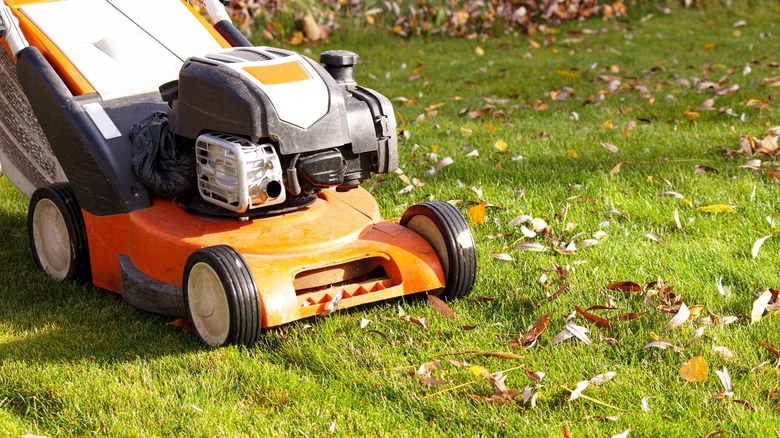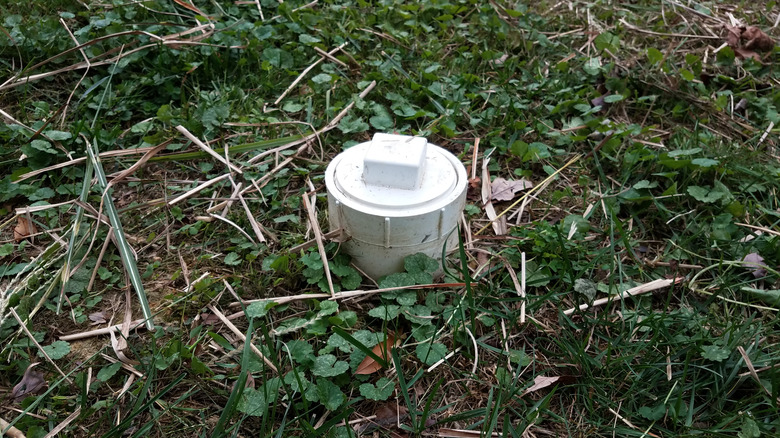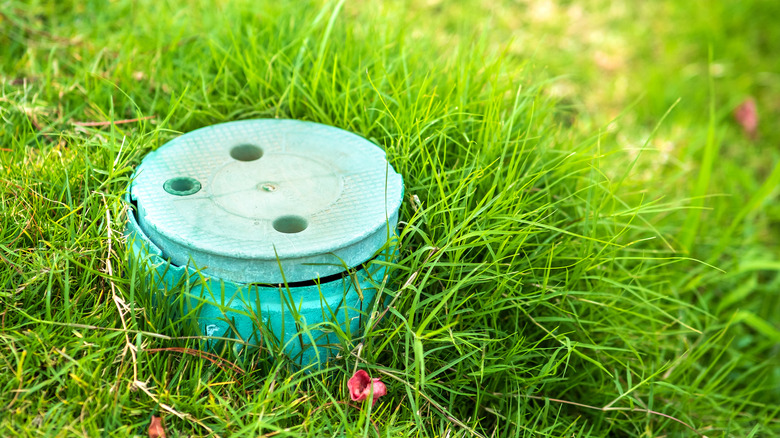Think Twice Before Mowing Over These Essential Plumbing Pipes In Your Yard
A properly functioning sewer system hidden beneath your home can make you forget just how messy life can be. Sewer systems have vent pipes on the roofs of houses, and though they release gas, you can't smell it from the ground. Homes connected to city sewer systems typically don't have ground vents, but some do — and so do homes with septic tanks. These vents are PVC pipes that stick out of the ground and are covered with caps so you don't smell them; ground pipes are typically there for easy access rather than to vent gases. Though some homes have pipes in flower beds or behind sheds to keep them out of sight, you may see them in the middle of yards or on the side of homes. Mowing over them can be detrimental to the pipe, your wallet, and your safety.
Sewer leaks can be expensive and unsanitary, so keeping mowers away from them is crucial. When purchasing or renting a new home with a yard, understand what kind of plumbing the house is equipped with. Look around for ground pipes along foundations, sheds, and throughout the yard. If the home wasn't previously well-cared for, overgrown grassy areas may be hiding a pipe that could get accidentally damaged.
Sewer damage is dangerous
A nick in the plumbing vent pipe may not seem like a big deal, but it can have costly consequences that will make you wish you never even bothered mowing the yard. One of the first issues you will notice is the foul odor surrounding your home, which will be a nuisance if you spend any time outdoors. But what starts as an inconvenience can become a bigger problem over time — a broken pipe can lead to sewer blockages from disrupted airflow, which can turn into slow drainage and backups that cause wastewater to pool in or around your home
If you damage the pipe and don't catch it for a while, you may find yourself with long-term issues that will be more difficult to fix. It can make surrounding grass grow taller and greener, which may not seem like an issue, but consider what's fertilizing it. The sewage leak and the tall grass can be an invitation for rodents and insects, as the dirty environment with ample moisture and protection makes for the perfect place for critters to call home. Beyond that, severe sewage leaks cause the ground to be consistently saturated with water. Extreme cases can lead to sinkholes around your home, which could even cause cracks in the foundation.
Prevent damage as much as possible
The first step to prevent damaging your plumbing pipes is to know where they're located. Check the basement first, especially if you live in a cold area since the pipes will likely be indoors to stop them from freezing. If you don't see them indoors, look outside along the perimeter of your home. They're often close to the foundation and have a black or white cap on the top of the pipe, though they may be a different color. Depending on your home's size, you may have more than one pipe. The pipe and cap could be covered by an additional cover that sits almost at ground level. The extra cover makes it easier to spot them and will help you protect the pipes, so try to get one of those if you don't have one already.
Once you've found the pipe, the easy part is avoiding the area. If grass has grown around the pipe, cut it by hand with hedge shears or use a weed eater. Allowing it to overgrow around the pipe for convenience isn't a good idea since overgrown grass can be a sign of a wastewater leak, and the grass can house pests. Taking the time to trim the area with precision rather than your mower will prevent you from many problems. Use markers to make the pipe visible, especially if you hire someone else to mow the yard for you.


